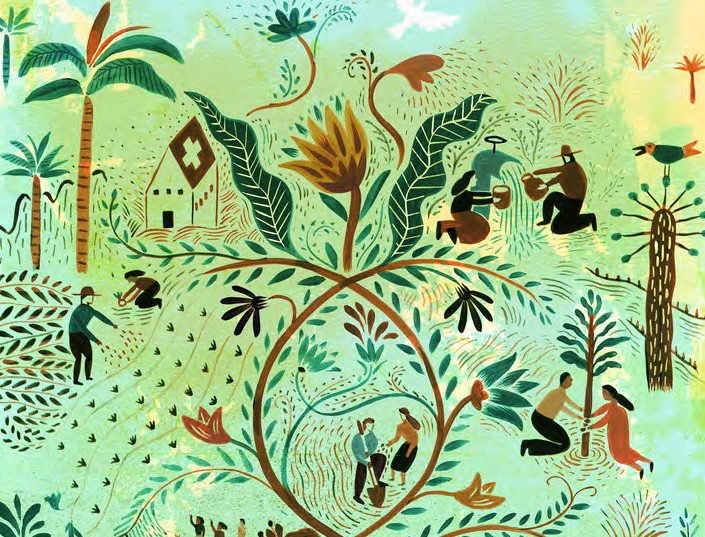by Cara Strickland—
I have never been beaten and left on the side of the road. But I have been hurt, finding myself in need of both practical and emotional help. In my experience, it’s rarely the people I expect to be able to count on who come to my aid. Like the man on the side of the road, I think the Levite and the priest are really good choices for care. Surely, they will see my pain, stop and help. Often, though, that isn’t the case.
Usually when I’m in great pain, I don’t have a lot of energy to hustle for help. I need people with initiative and eyes to see—people who, like the Samaritan, will be moved with compassion when they see the state I’m in.
I didn’t expect that those most willing to offer support when my heart is broken, when I’m dealing with setbacks or trauma, would be people outside the church. But these are the friends who call to make sure I’m eating, not once, but many times a day. They invite me over and cook for me, refusing to be offended even when it’s hard for me to take a bite.
These are the friends who open their homes, giving me space to process a major change in my life, to sleep in, to cry, to bask in the glow of a family. Sometimes it is even strangers who offer that word of kindness, who reach out to see if I’m okay when I’m having a difficult day.
These aren’t cases of friends following the commands of Jesus. Yet they act as neighbors because we are. They pay attention to my pain, and they bind up my wounds with oil and wine. And God is moving through them. When they step in with physical help, when they hold me while I cry, they participate in the ways that God is making all things new and all things right.
One of the most powerful things about the Good Samaritan story is that the traditionally reviled one is the hero. The person who doesn’t belong becomes the example, the teacher. As believers, we are called to be salt and light to the world. We are called to seek out all of the people on the sides of the road who are wounded and alone—regardless of their affiliations, skin color or the name of the God they pray to. How often are we the ones who choose to walk by hurting people? How often do we choose to walk by those who are hurting because it makes us uncomfortable, because it is inconvenient?
But there is another invitation in this story. We are also called to keep our hands open—even when help comes from an unexpected quarter. We are in no position to turn up our noses at the people God chooses to use to bring relief in our lives and in our faith communities. We are called to emulate the example of these people, who act as conduits of God’s care.
Growing up, I was skeptical of people who didn’t profess Christ, even a little worried that their secular ways would rub off on me. I wanted to surround myself with people who believed the same way I did. I was sure this would protect me from situations where I wouldn’t be supported.
If you’ve been in the church long enough, you know that even wonderful, faithful communities sometimes let people slide through the cracks. Unlike God, we are imperfect and can’t be everywhere. Whether we’re pastors, church leaders, faith community members, we let people down. Sometimes we cross the street and walk by on the other side.
God is not limited in the same way that people are. If the church doesn’t rise to help those in pain, God has other options and limitless resources. God’s hands take all forms. Where one person walks by, God brings another person onto the path, inviting people into God’s redeeming work for the earth.
But what is the point of a parable? This one comes about because someone asks a question: Who is this neighbor I’m supposed to love as myself? Who is the person I should care enough about to cross the road, to make myself uncomfortable for, to put myself out financially in order to help? It’s a question that comes out of a small heart, a heart more concerned about the risk and pain it might take to help someone in need than with the great pain in the world.
With this parable, Jesus tells us that when we strive to parse and limit those we should care about, our hearts are in the wrong place. When Jesus expands the idea of who a good neighbor is to someone we might not even want to nod at on the street, he turns the question on its head. This isn’t about who counts and who doesn’t. Everyone counts, Jesus says, everyone from the powerless to the powerful, no matter what they believe or in what position they find themselves. Behold: The world is made up of our neighbors. What if we acted like it?
Cara Strickland writes about food, faith and life from her home in the Pacific Northwest. You can read more of her work at carastrickland.com.
This article is from the March 2018 issue of Gather magazine. To read the full story or more like it, subscribe to Gather.


